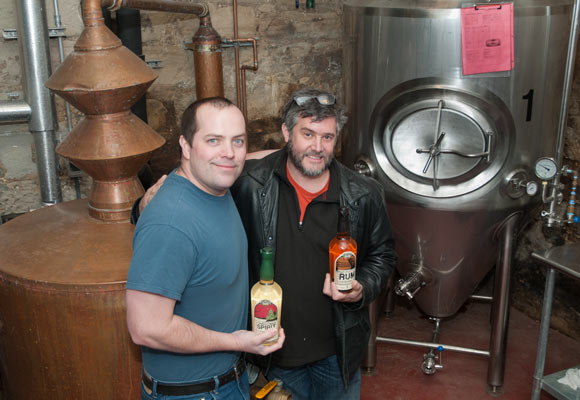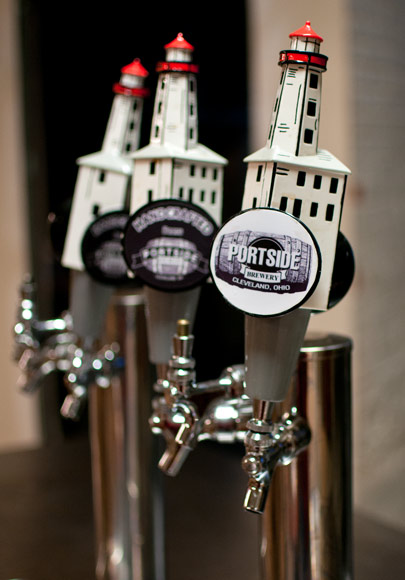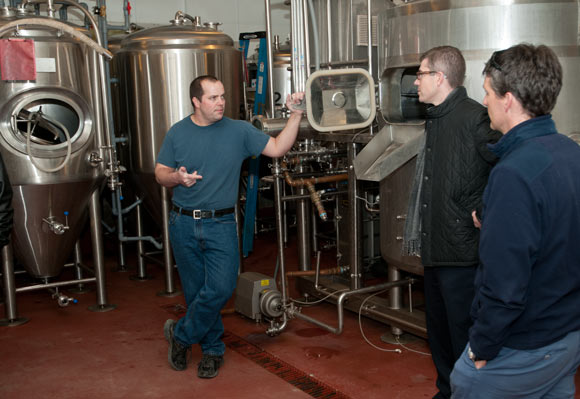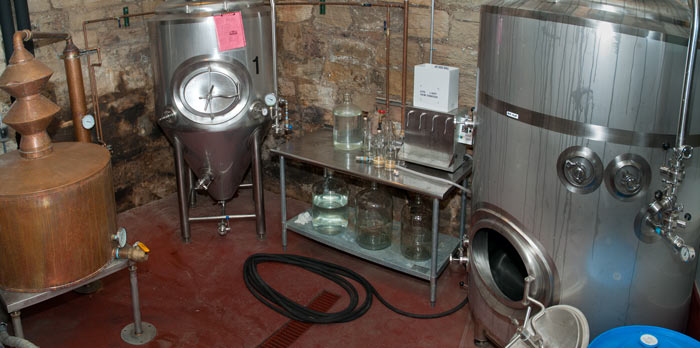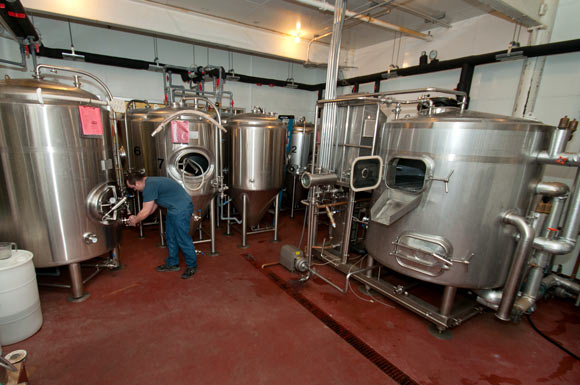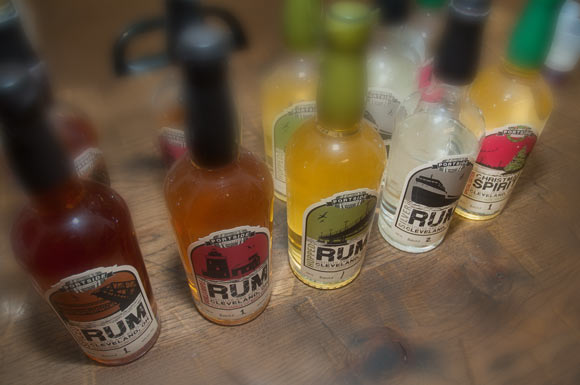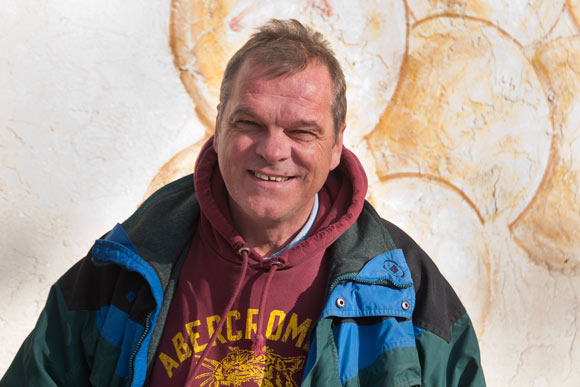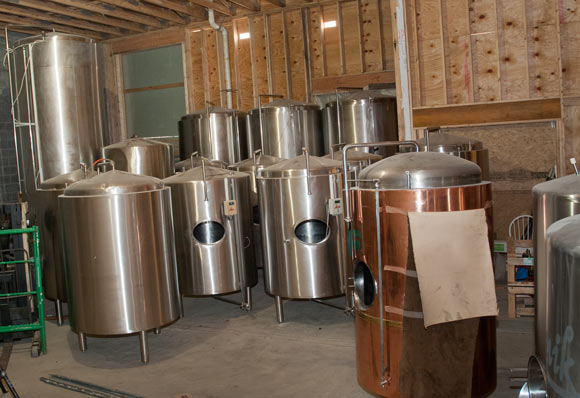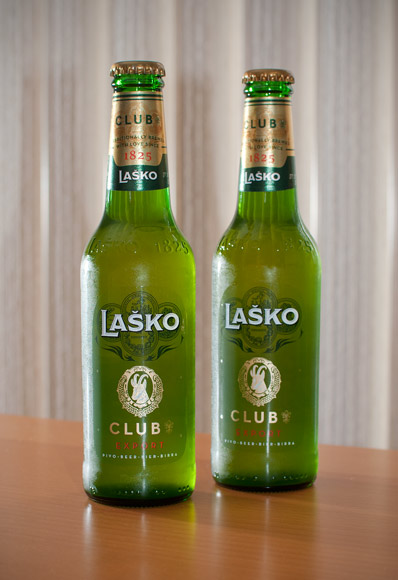business of beer: new breweries lift neighborhoods on rising tide of craft beer
Beer's been a part of this land since the pre-Colonial era, providing responsibly drinking adults with refreshment, camaraderie and a glut of annoying Super Bowl commercials. The alcoholic beverage produced by the saccharification of starch and fermentation of the resulting sugars also has acted as a steady source of fuel for the nation's economy, with old world traditions intersecting with the newer craft brewery movement.
On any given night out in Cleveland, it's not too difficult to observe the far-reaching economic impact represented by a seemingly simple glass of fresh-brewed suds. The Great Lakes Brewing Company has anchored Ohio City for 25 years and is on pace this year to sell 148,000 barrels of beer while taking in an estimated $11 million in revenue annually, according to Forbes.
The venerable brewers of Christmas Ale and Eliot Ness lager are far from the only beer joints on the street, however. By this coming spring, Ohio City will have debuted its fifth brewery over the span of a few city blocks. Meanwhile, Cleveland neighborhoods like the Flats and PlayhouseSquare are brewing up their own cerveza-fueled enclaves.
Rather than simply wet a city's collective whistle, Cleveland's beer entrepreneurs are helping to transform the region's economic prospects one pint at a time. Fresh Water tapped into the minds of these local beer barons to discover what's brewing with their businesses.
Brewing up a new model
Paul Benner, owner of the Cleveland Brew Shop in Tremont, is among those getting ready to hang out a "Beer Here" shingle in Ohio City. Once the newly minted Platform Beer Co. opens next spring, it will join Great Lakes, Market Garden Brewery, Nano Brew and the forthcoming Hansa Haus brew pub as part of the quintet of breweries in that district.
Benner isn't worried about his business getting lost in an increasingly congested beer corridor. For one, Platform isn't on crowded W. 25th Street, but down the block and around the corner on Lorain Avenue near W. 41st Street, in a former Czech social club. And in addition to formulating its own beers at a clip of roughly 800 barrels per year, Platform's unique hook will be a two-barrel pilot system available to skilled homebrewers looking to turn their hobby into something more profitable.
Call it a "brewery incubation system," says Benner, one that provides space, equipment and start-up assistance for hobbyists itching to hit the beer big leagues. "We're bridging the gap between the home and pro brewer."
Platform's brewhouse will also house an onsite taproom, meaning patrons will be able to sample a seasonal lineup of beers in the very space in which they're brewed. "It's a manufacturing place where you can have a beer," says Benner. "People are going to feel a connection to their product."
The business model is not all that unusual, he believes. Benner estimates that 95 percent of professional brewers started out making beer in their home kitchens. He brewed up his first batch of homebrew (summer wheat) after being introduced to the hobby by a friend. Benner was instantly hooked, and he thinks that mentality will help Platform carve out its own niche in Ohio City's -- and Cleveland's -- craft brew scene.
It helps that Platform will be surrounded by a grassroots mentality more interested in collaboration than competition. Benner has gotten advice about regulatory requirements and distribution from others in the business, including his neighbor Sam McNulty, owner of Market Garden and Nano. "The idea is everyone stepping their game up to help the neighborhood," says Benner. "The more options [for visitors], the better."
Music to our mouths
The explosion of Ohio City's beer culture is fueling Hansa Haus proprietor Boris Music's decision to build his own brew pub/restaurant on the site of his specialty foods store. When the expansion is completed this spring, the complex will brew up authentic beers from Music's native Slovenia. A procession of European chefs will make their way through the restaurant kitchen, creating homemade specialties aimed at Cleveland's diverse ethnic makeup, while also dishing up tasty pub grub for casual diners.
At the corner of Lorain Road and W. 28th Street, Hansa Haus is within spitting distance of the big boy brewers who helped revive what was a crumbling and dangerous community back when Music bought his shop in 1980.
"The neighborhood was a disaster," Music says. "We were getting robbed once a week."
Years back, Music had thought about relocating his business to the suburbs, but Ohio City had too much potential for the shop owner to put it in his rearview mirror. The success of Great Lakes Brewery helped jumpstart the neighborhood's fortunes, and even with other beer establishments now scrambling for purchase, Music doesn't feel the least bit intimidated.
"There's no jealousy; we are almost like a family," he says of the beer-brewing community. "Everyone is rooting for everyone else. The neighborhood has gotten cleaner and safer over the last 20 years. The brewery scene here is a reason for that."
Eric Wobser, executive director of the Ohio City Inc., believes brewers have integrated well into the district's broader artisan economy. Breweries aren't the only ones making goods in Ohio City -- the neighborhood also claims bike and baseball bat makers, to name but a few -- but area beer makers are the ones leading the charge.
"More people are desiring beers that tell a local story," says Wobser. "It's a celebration of something authentic."
The clustering of brew pubs has created a critical mass of consumers, he notes. Saturation is not an issue as each Ohio City brewery brings a unique suite of products and services. Platform Beer Co.'s unusual business model, for example, should blend seamlessly with what the rest of the district has to offer.
"It's a matter of a rising tide lifting all ships," Wobser says. "There may be some competition, but in spite of that, these [breweries] see themselves as part a place where everyone's success will create even more opportunities for success."
Getting in on the act
By next summer, the near-west side won't be the only Cleveland community brewing up heady times. In November, Brauhaus Cleveland broke ground on the new Hofbrauhaus Cleveland in PlayhouseSquare. The $8.3 million endeavor will feature 24,000 square feet of space, offering nearly 600 indoor seats and more than 1,000 outdoor seats in the beer garden, making it the largest dining and drinking establishment in Cleveland.
The German-sanctioned franchise will brew authentic Hofbrau beer and serve Bavarian dishes, often placing two dozen revelers around a single communal table. "It's like having Oktoberfest all year 'round," says Andis “Andi” Udris, president and CEO of Cincinnati Restaurant Group Inc., which is developing the project.
The complex will be located off Dodge Court at the northern end of the theater district, incorporating the Hermit Club, a century-old amateur performing arts venue. Hofbrauhaus will have its own entertainment in the form of "oom pah rock" bands that combine polka with rock 'n roll.
PlayhouseSquare is an ideal anchor for the undertaking, notes Udris. The beer hall can be its own draw while cross-pollinating with theater district programming. "What the theater has in entertainment, we're adding to that with food and beverage," Udris says.
Not to be left out, the Flats is now home to Portside Distillery, a 6,000-square-foot brewery and distillery on Front Street that straddles both the Flats and the Warehouse District. In a few months, co-owner Dan Malz expects the space to be rounded out by a bar, restaurant and gift shop. Until Malz set up shop, the city of Cleveland hadn't had a booze distillery since Prohibition.
"We want beer drinkers, of course, but we expect to have a wide variety of customers," says Malz, a homebrewer since his teenage years.
The Mentor resident and his ownership group have a 20-year lease on their location, which gives them time to create new classics like "Christmas Spirit," a rum-infused concoction spiced with cinnamon, ginger, honey and nutmeg. Malz is pleased to be part of the Flats' ongoing renovation, although he's certain Portside's tasty wares would sell regardless their location.
"There's nothing like this in Cleveland," Malz says. "What we're doing can work in any neighborhood."
There certainly is room for Cleveland's craft brewery industry to grow even further, says Benner of Platform. The region is nowhere close to the saturation levels experienced by leading beer cities like Denver or Portland.
"There's no reason beer can't continue to move," he says. "It's an exciting creative outlet."
Photos Bob Perkoski


